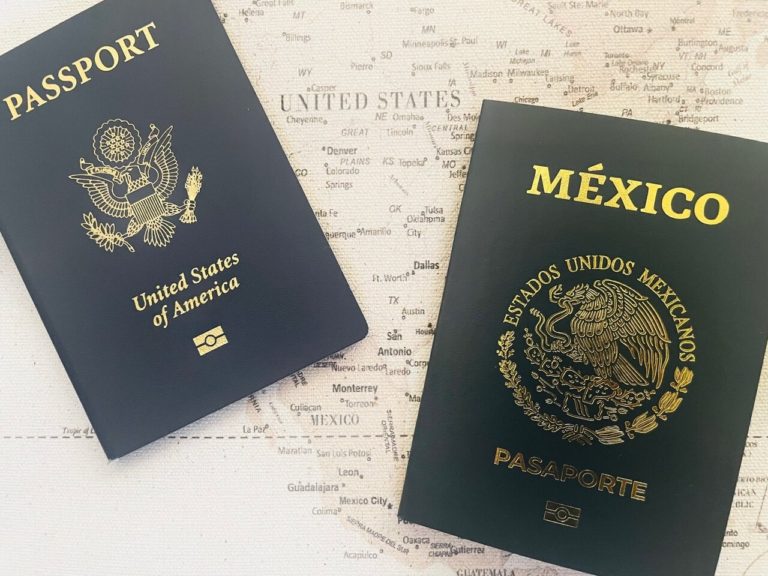Love knows no boundaries, and often times couples find it across international borders. Proposing to a partner is an exciting beginning to a lifelong union. Unfortunately, navigating the differences in nationalities and immigration statuses can be an overwhelming process that requires careful planning and strategizing. An experienced immigration attorney can help guide you through thick international waters and avoid common mistakes that can have devastating consequences.
In general, a U.S. Citizen and a foreign fiancé(e) have the following options to adjust the foreign fiancé(e)’s status to a lawful permanent resident:
- Option 1: Securing a K-1 Visa while the fiancé(e) is not in the U.S., entering the U.S. and marrying the U.S. Citizen, and finally applying to adjust status;
- Option 2: Entering the U.S. in another status, marrying the U.S. Citizen, and then seeking to adjust status; or
- Option 3: Marrying outside the U.S., entering the U.S. on a K-3 Visa, and then applying to adjust status (or alternatively filing an immigrant visa, I-130: Petition for Alien Relative, after the marriage).
However, issues may arise relating to admissibility, fraudulent intent, bars due to the petitioner’s prior criminal convictions, and eligible derivative benefits which are beyond the scope of this blog. It is best to first discuss the best strategic approach with an immigration expert.
The K Visas
The K-1 Visa is used by fiancé(e)s of U.S. Citizens to enter the U.S. for the purpose of marrying the U.S. Citizen and then filing for permanent residency through adjustment of status. An approved K-1 Visa petition is valid for a period of four months from the date of USCIS’ approval of the I-129F: Petition for Alien Fiancé(e). However, consular officers may revalidate an unlimited number of times in four-month increments if the officer decides that the U.S. Citizen and the foreign fiancé(e) remain legally free to marry and continue to intend to marry within 90 days of entering the U.S. The K-1 Visa is typically approved for 6 months.
Unfortunately, K-1s cannot change status to another nonimmigrant category or adjust status to permanent residency on any grounds other than the marriage to the U.S. Citizen. The petition is automatically terminated where the U.S. Citizen dies or withdraws the petition. However, once the K-1 marries the U.S. Citizen within 90 days of admission, they (and any K-2 children) may adjust status, despite the death of the U.S. Citizen and without filing an I-360.
The K-2 Visa is available to unmarried, minor children (under 21) of an individual who qualifies for the K-1 Visa. K-2 children are eligible to adjust status as long as they enter the U.S. before the age of 21 and the parent married the U.S. Citizen within 90 days. It does not matter if the child turns 21 prior to filing the adjustment of status.
The K-3 Visa is available to spouses of U.S. Citizens who await approval of a I-130: Petition for Alien Relative to enter the U.S. as nonimmigrants. K-3 Visas based on a marriage that took place outside the U.S. need to be issued by a consular officer in the foreign state where the marriage was conducted.
K-3s cannot change status to another nonimmigrant category or adjust status to permanent residency on any grounds other than based on the marriage to the U.S. Citizen. If the I-130: Petition for Alien Relative or adjustment of status is denied or revoked, K-3 status terminates 30 days after the denial or revocation. Also, K-3 status will be terminated 30 days after the divorce to the U.S. Citizen.
The K-4 Visa is available to unmarried, minor children (under 21) of an individual who qualifies for the K-3 Visa. K-4s do not require a separate petition from the U.S. Citizen and need only be listed on the I-129F: Petition for Alien Fiancé(e). A K-4 cannot adjust status through another basis, including marriage. Also, the K-4 status is terminated 30 days after the K-4’s marriage.
The K-3 and K-4 Visas are valid for for 2 years, unless constrained by security clearance requirements or waivers, which are valid for a year or less. An unmarried person entering the U.S. as a K-4 should be admitted for a period of 2 years or until the person’s 21st birthday, whichever is shorter. K-3s and K-4s are permitted to travel outside the U.S. after entering without advance parole as long as they are still in K-3/K-4 status and reenter the U.S. using that status. If the U.S. Citizen petitioner dies after the K-3 or K-4 is admitted, the I-130: Petition for Alien Relative is automatically converted to an I-360 petition as a widower of a U.S. Citizen and the K-4 can “accompany of follow to join” the K-3 based upon the I-360: Petition for Widow(er).
The Requirements
K-1 Visas
The K-1 Visa generally requires that:
- The couple has a bona fide intent to marry within 90 days of the foreign fiancé entering the U.S.;
- Each member of the couple is legally able to marry; and
- The couple has met in person within two years of filing the petition unless:
- Such a meeting would result in extreme hardship to the U.S. Citizen, or
- The meeting would violate strict and long-established customs of the U.S. Citizen’s fiancé(e)’s foreign culture or social practice.
The process has the following major phases:
- Submission and approval of Form I-129F, Petition for Alien Fiancé(e);
- Approval of the Form I-129F by USCIS;
- Transmittal of the approval and further processing by the National Visa Center;
- Transfer to the consular post;
- The consulate or embassy conducts an interview, and if the beneficiary is eligible, they receive a K-1 nonimmigrant visa;
- Entry to the U.S. and marriage to the U.S. citizen within 90 days;
- Application for and approval of an I-485, Application to Register Permanent Residence or Adjust Status.
K-3 Visas
The K-3 Visa generally requires that:
- The beneficiary is married to a U.S. Citizen and the marriage is valid;
- The U.S. Citizen has filed, or is concurrently filing, a Form I-130 on their behalf;
- The U.S. Citizen who files the I-130 must file the I-129F.
The process has the following major phases:
- Submission of Form I-130 by the U.S. Citizen spouse on behalf of the beneficiary spouse;
- Submission and approval of Form I-129F, Petition for Alien Fiancé(e);
- Approval of the I-129F form by USCIS;
- Transmittal of the approval and further processing by the National Visa Center;
- Transfer to the consular post;
- The consulate or embassy conducts an interview, and if the beneficiary is eligible, they receive a K-3 nonimmigrant visa;
- Entry to the U.S.;
- Application for and approval of an I-485, Application to Register Permanent Residence or Adjust Status.
Finding the right avenue that works for your family is important to reap all the possible benefits and avoid any negative consequences. It is important to have a skilled immigration lawyer on your side to explore all the available options.
Join our Newsletter to stay up to date on the issues that matter to you by clicking here.

Albert Mendoza
At Albert Mendoza Law, you will receive the legal representation you need and deserve.




